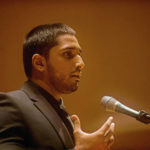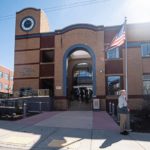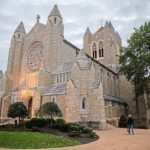As political tensions flare and government mistrust spreads, local leaders are turning to trusted community members to promote the census.
For months, local officials have relied on faith leaders to help dispel fears and promote the importance of the census, which determines the number of congressional seats per state and dictates how federal and state funding is distributed.
“It might take a little bit of the stigma away,” said Deborah Thackrah, member of the Westmoreland County Complete Count Committee. “People have a fear about it. They think Big Brother’s going to come, but if you have community leaders, whether faith-based or human service-based … I think it helps promote the importance of it (the census).”
Those leaders are often in the public eye, Thackrah said, and can spark a conversation that could lead to people being more comfortable with the census.
While efforts by faith leaders were largely stymied when the coronavirus pandemic hit, leaving churches, synagogues and mosques empty of worshippers, some entities still worked to promote the census, understanding its impact on the community.
The Rev. Brian Kilbert of Puckety Presbyterian Church in Lower Burrell said he has been discussing the census in conversation rather than to the congregation because meetings are taking place virtually. Despite that barrier, Kilbert said he understands the importance of the survey and “being responsible as a citizen.”
At Otterbein United Methodist Church in Greensburg, the Rev. Dawn Lynn Check found herself in similar circumstances. While unable to advocate for the census as much as she has in previous years due to the pandemic, Check said the survey is a way to promote the underserved.
“I think, as pastors, as religious leaders, we owe it to our community to stand up for justice, and this really becomes a justice issue,” she said. “Those who are not counted, those who are in need, those who are disabled, those who are elderly, their voices need to be heard, and the only way we can get them heard or have them be heard is by being counted.”
The importance of the survey was discussed during a February panel hosted by the Census Bureau, featuring faith leaders from across the country, who discussed the importance of the once-a-decade survey. Key tips that came out of the forum included talking about the census in announcements, stating census facts during sermons, putting inserts in weekly bulletins and hosting a census event for their congregations.
The Catholic Diocese of Greensburg largely promoted the census in its newspaper, The Catholic Accent, spokesman Jerry Zufelt said.
“Places of worship are part of our civic fabric, and — like all aspects of civil society where people are connecting with one another — we’ve turned to faith leaders to join us in our campaign to count everyone, to convey that we all belong,” said Gregg Behr, co-chair of the Allegheny County Complete Count Committee.
Faith leaders were included in the committee since its first meeting in 2018. Those leaders created a civic fabric subcommittee that works with other trusted organizations, such as libraries and charities, to encourage people to respond to the census.
Rabbi Ron Symons of the Jewish Community Center of Greater Pittsburgh, a member of the Allegheny County Complete Count Committee, promotes the census through the organization’s Center for Loving Kindness. Promoting the census, he said, directly aligns with religious foundations.
“Every religious tradition I know holds foundational beliefs about the value of each person,” Symons said. “Across faith traditions, we promote that each individual is a reflection of the divine, a mirror image of a neighbor and deserving of respect.
“The census is designed to not only ensure appropriate funding for our communities, it is designed to remind every neighbor that he/she/they have infinite worth.”
Jamaal Craig, former executive director of the Pennsylvania Interfaith Impact Network in Squirrel Hill, said that during his time with the nonprofit organization he worked to get religious leaders across the city to promote the census, realizing the reach the network has.
“Contrary to popular belief, the faith community is still a well-trusted body, at least for the members who attend their respective worship services within their respective organizations,” Craig said.
That trusted body is key for the Muslim community, part of which is made up of immigrants and refugees who might face language or cultural barriers, said Wasi Mohamed, former executive director of the Islamic Center of Pittsburgh in Oakland. Having a leader of the Islamic faith promote the census, Mohamed said, helps bridge those gaps.
“I think those relations are crucial, which puts a lot of responsibility upon the leaders and also upon those looking to ensure we get a full count here to make sure those leaders are supported,” Mohamed said.
Uncertainty over when the count would officially end left local leaders working to obtain as much data and documentation as possible, Behr said. In July, officials with the Census Bureau cut short in-person counting efforts, moving the deadline from Oct. 31 to Sept. 30.
But on Friday, a federal judge in California ordered the Trump administration to abandon those changes and extend the counting period an additional month, NPR reported. Still, the Justice Department is expected to file an appeal in response to the order, according to the news source.
As for the impact faith leaders have on obtaining a complete count, leaders will not know the full story until data collection is complete, Behr said.
Symons noted the community has been receptive to conversations about the census.
“People want to be counted,” Symons said. “People want our region to receive funding. People want to live in a community that can meet the needs of their neighbors.”













